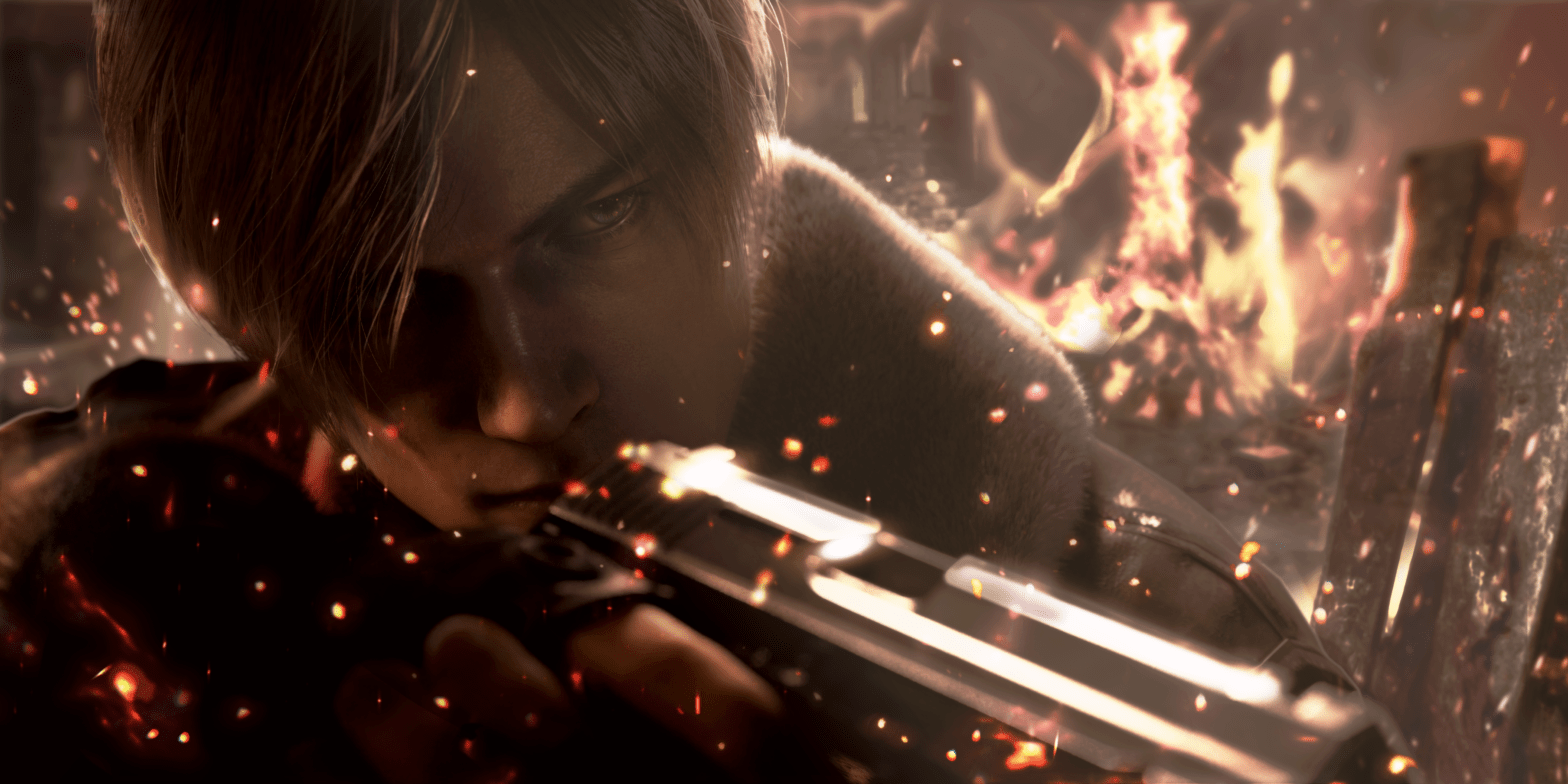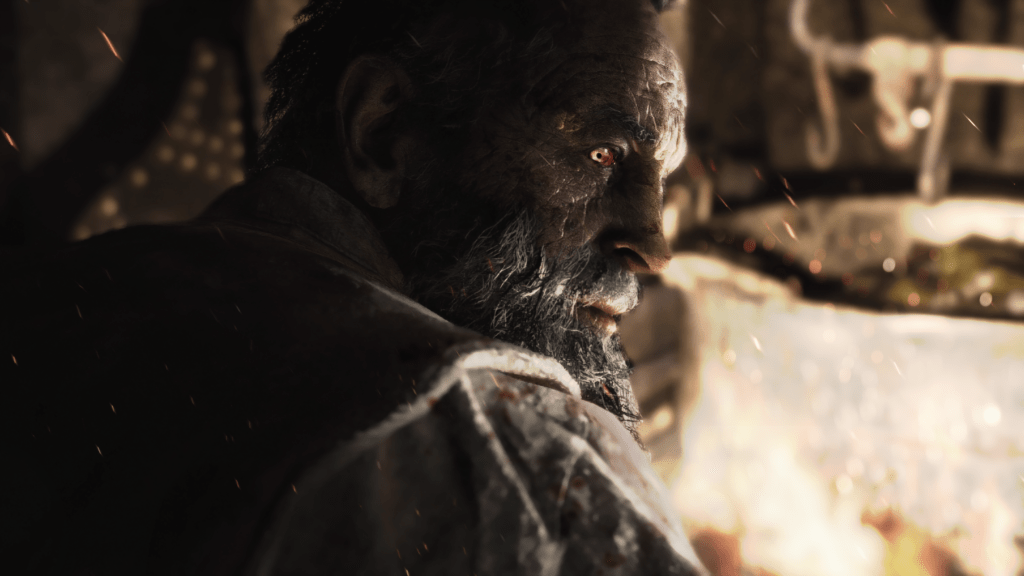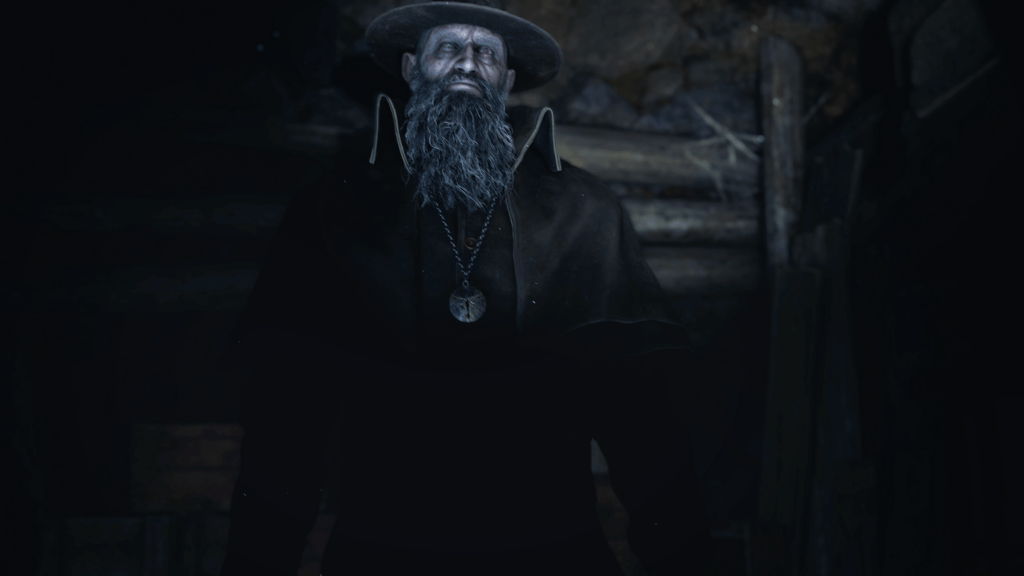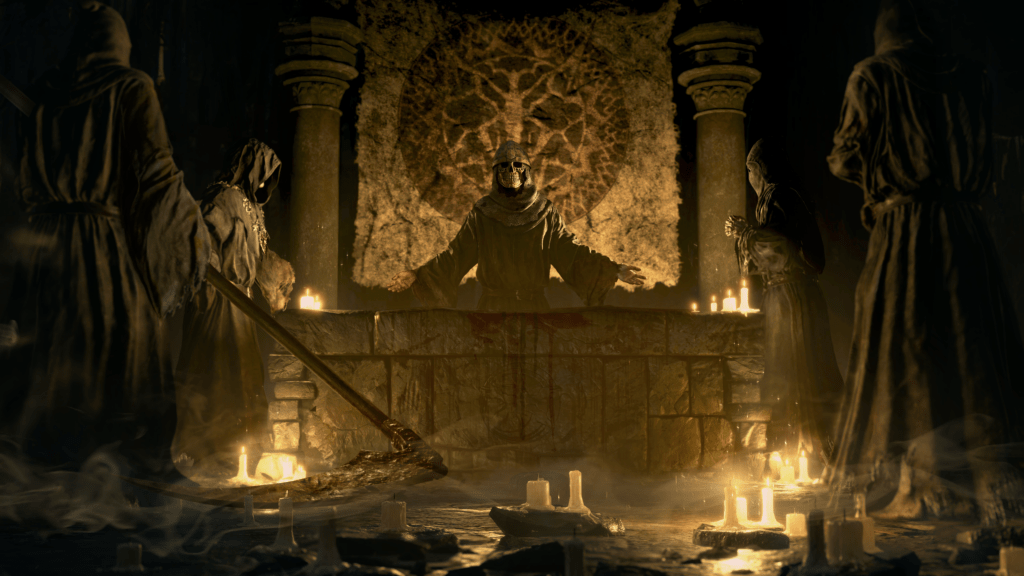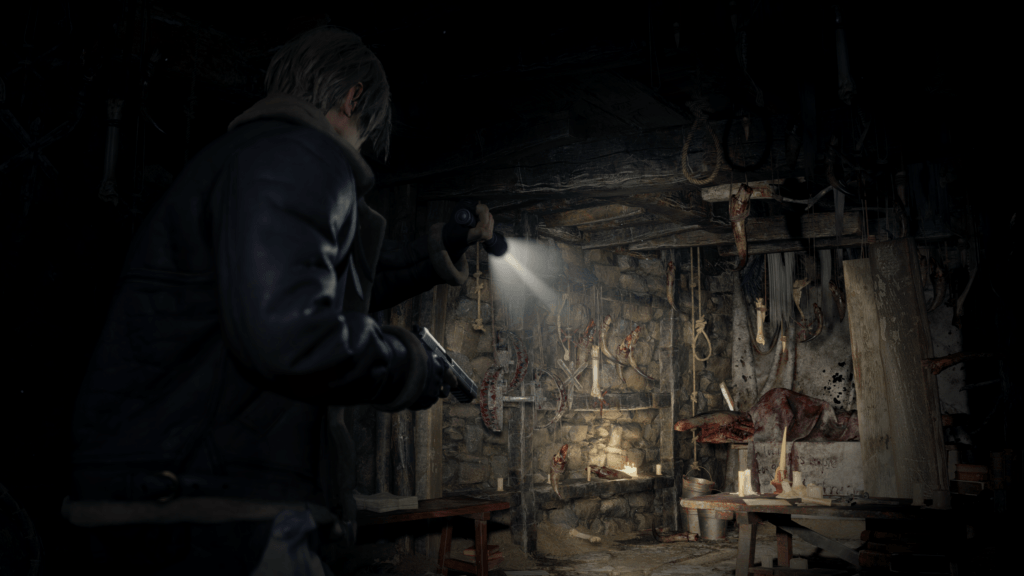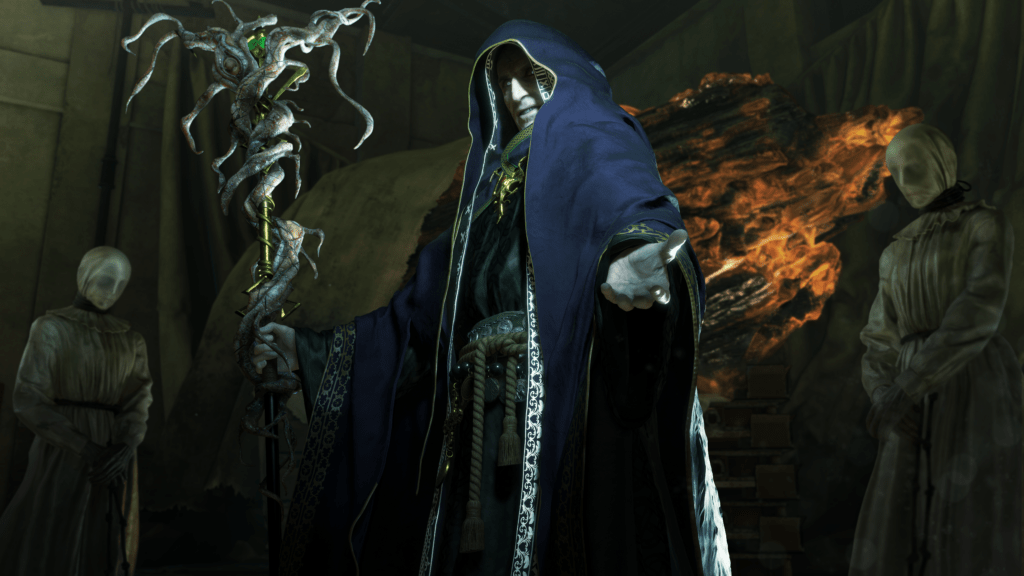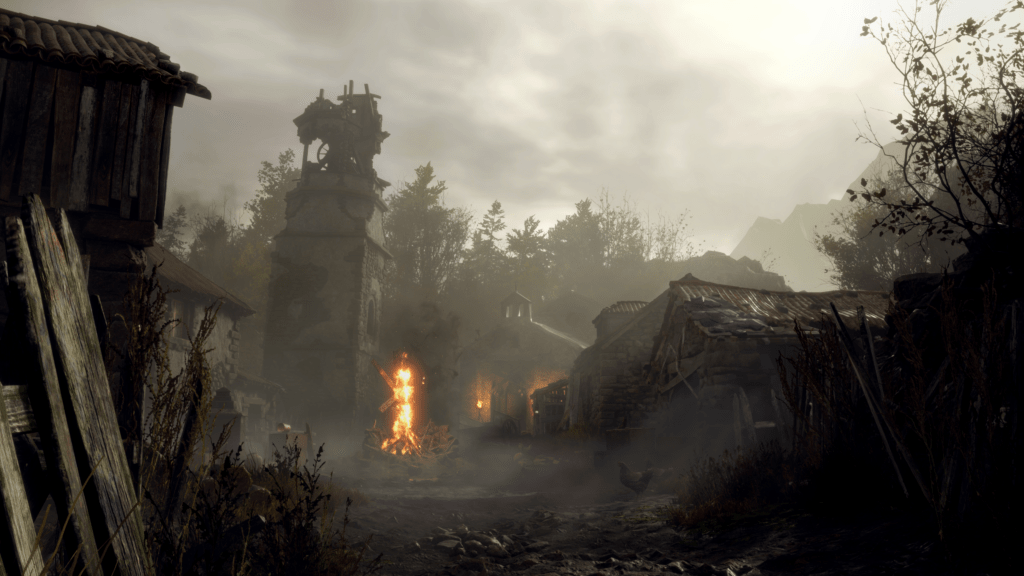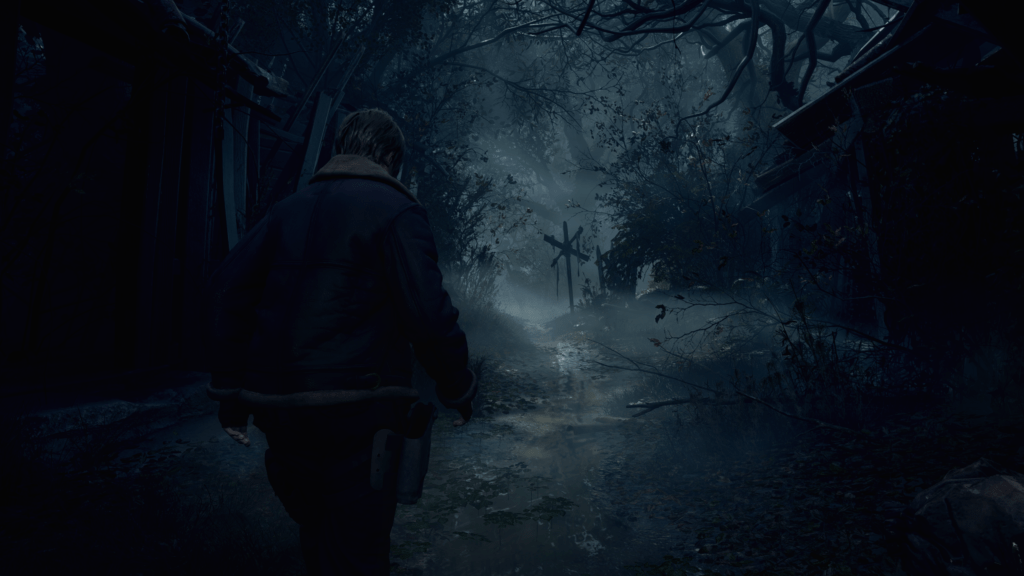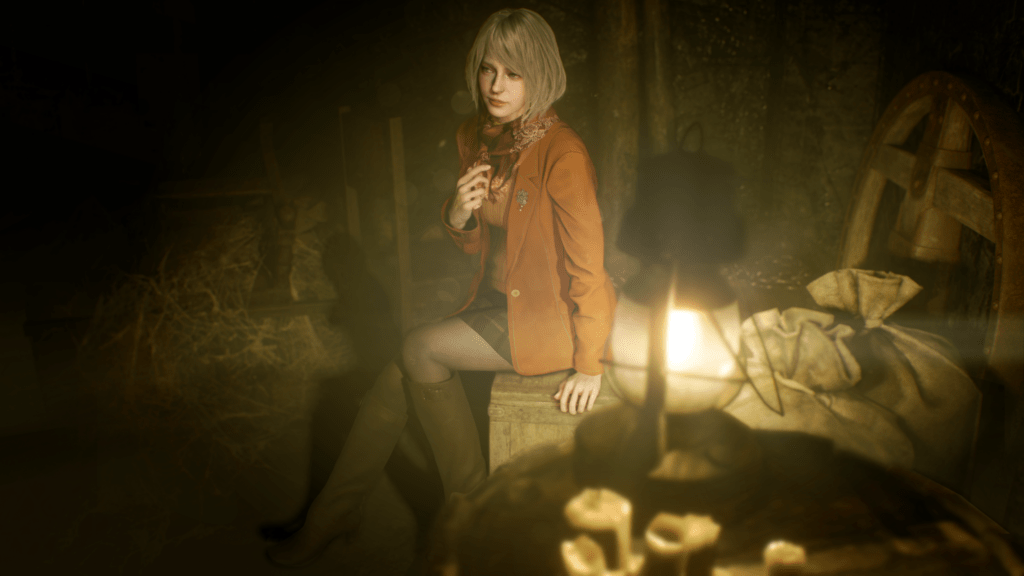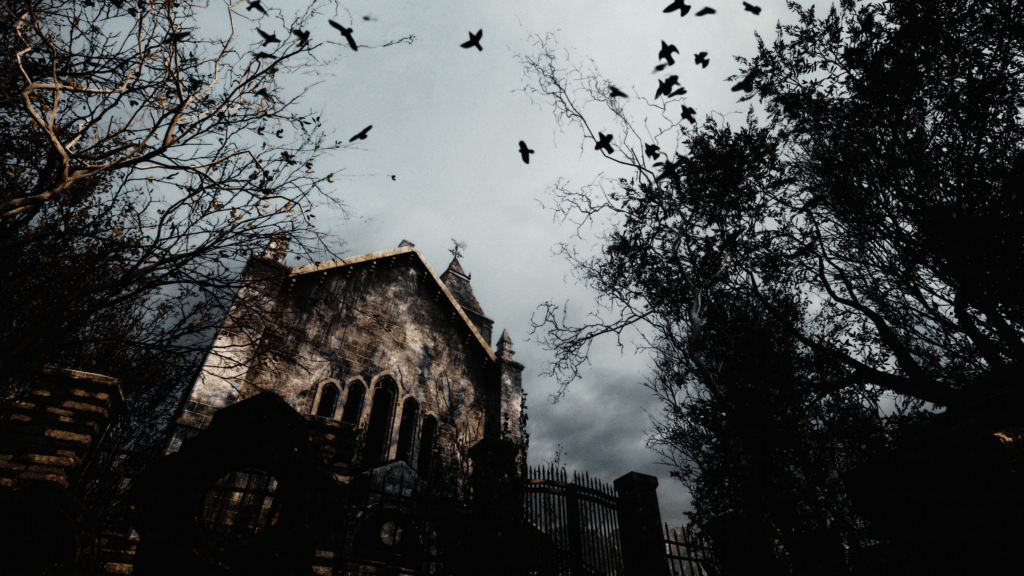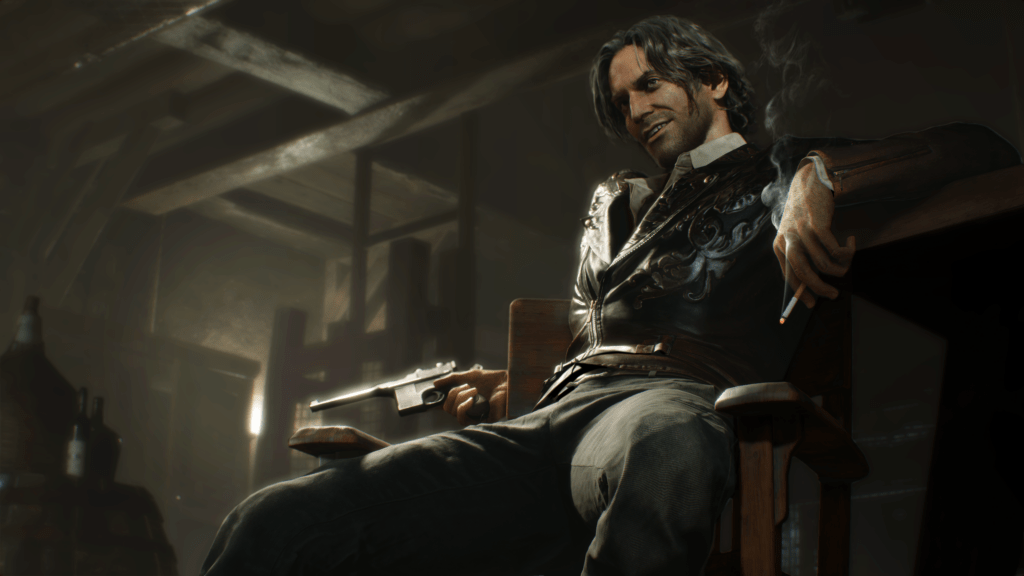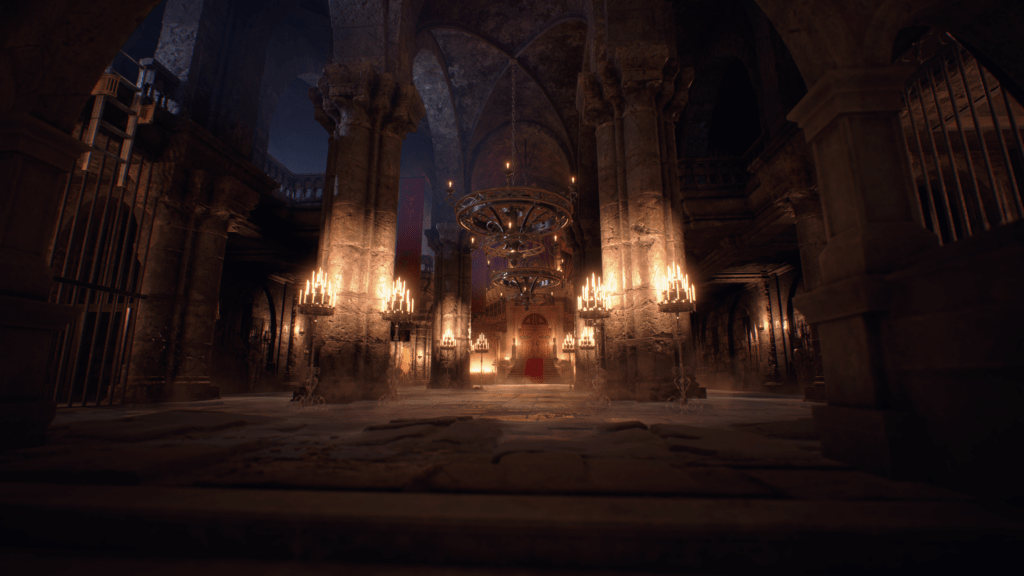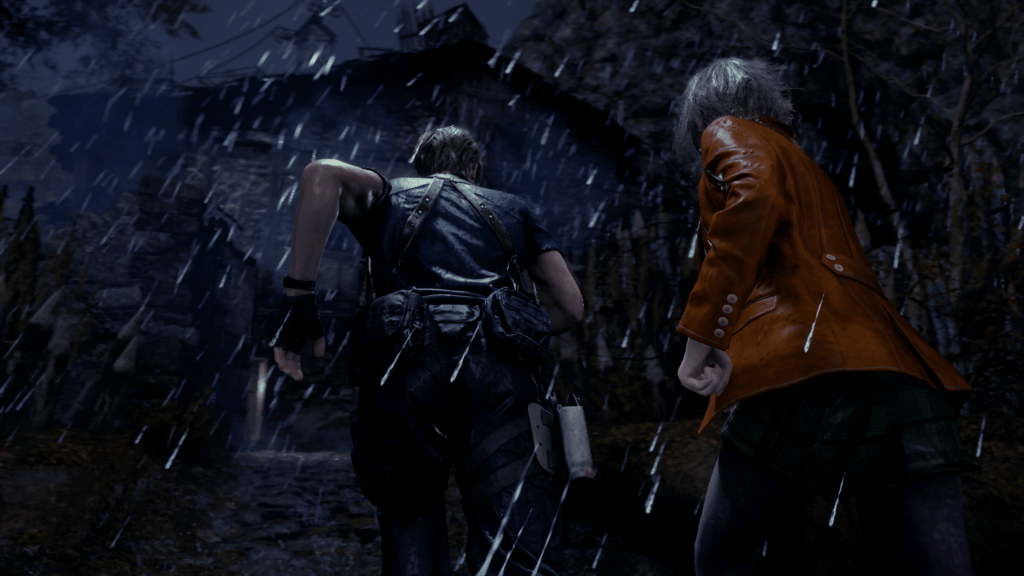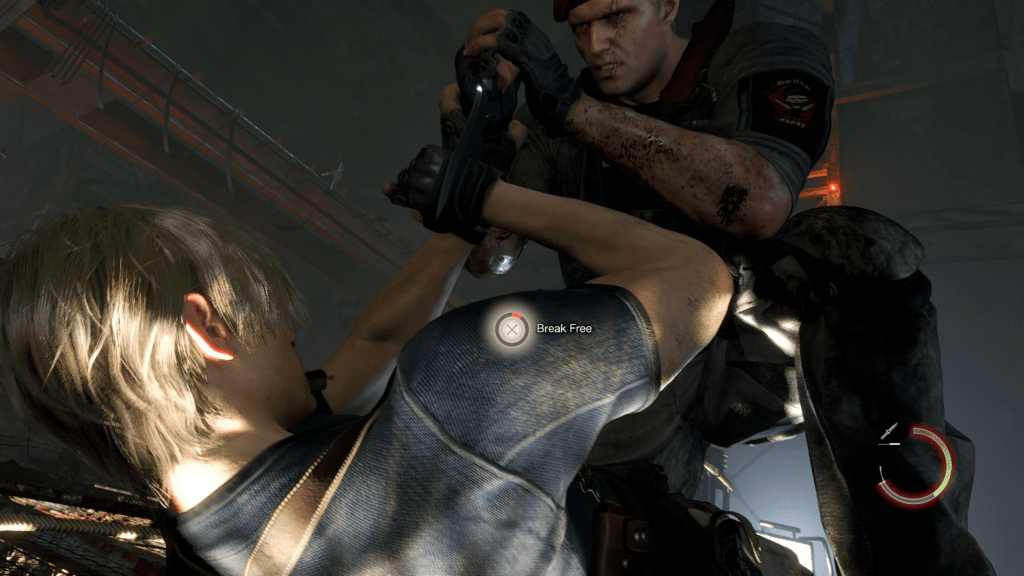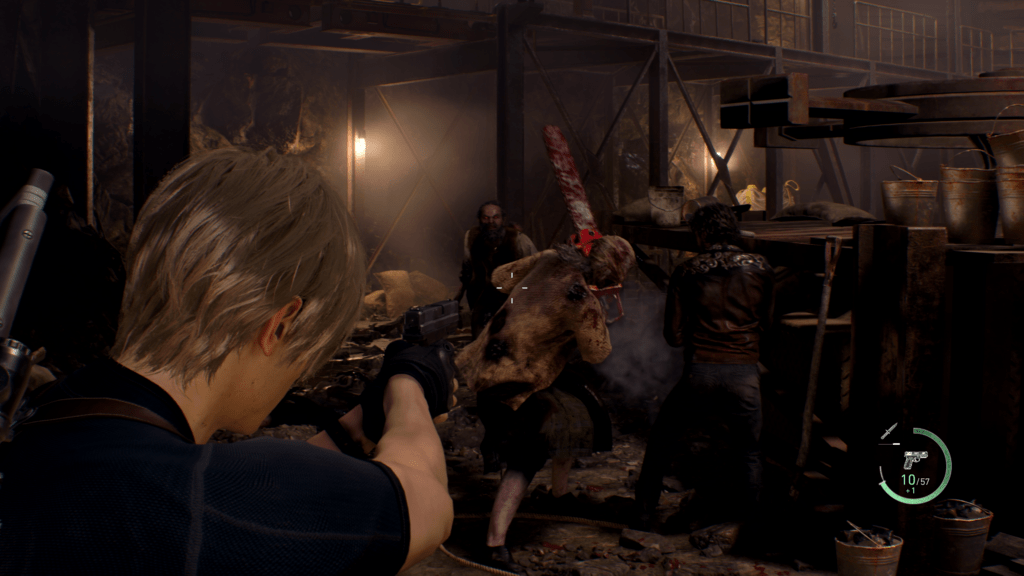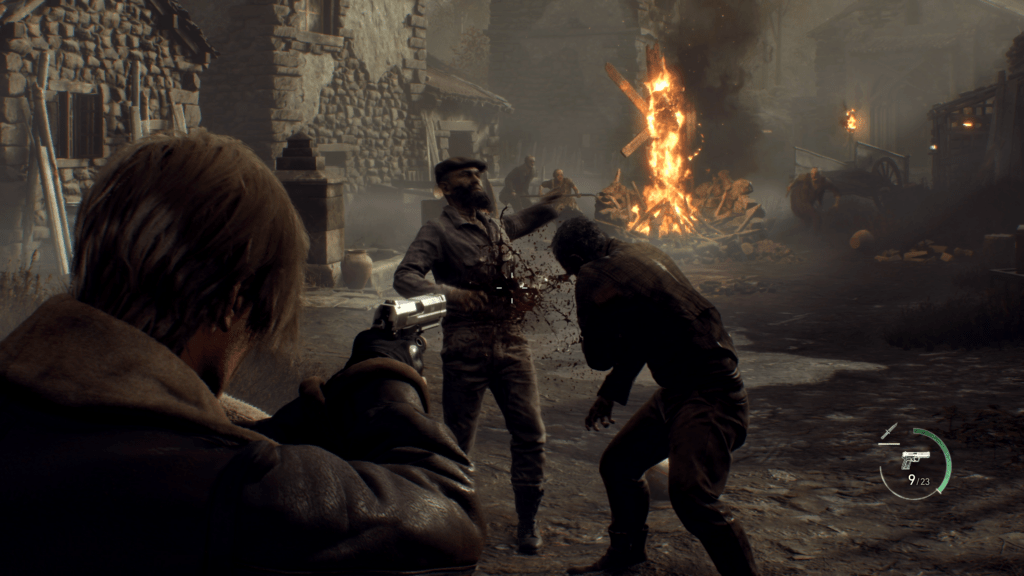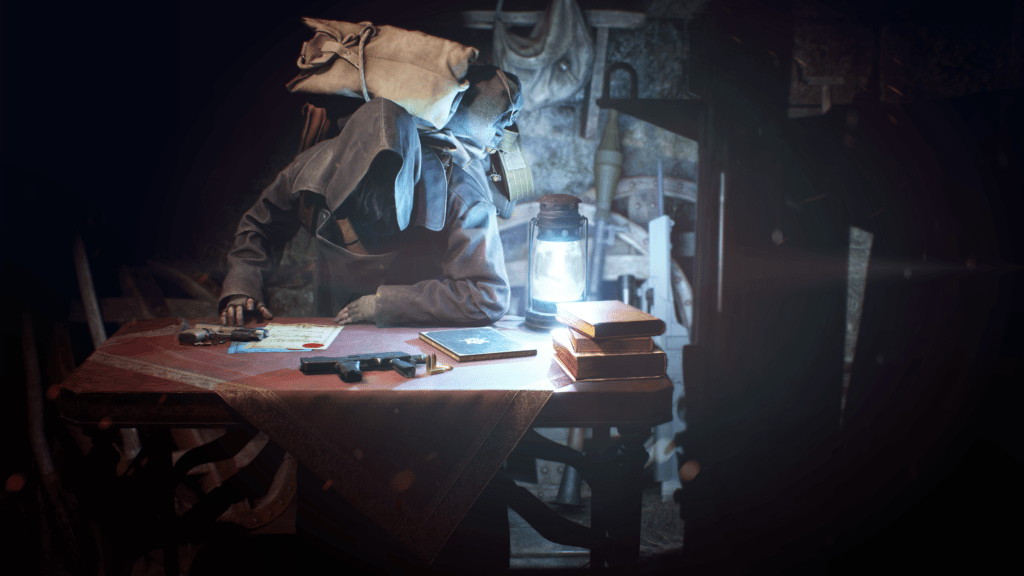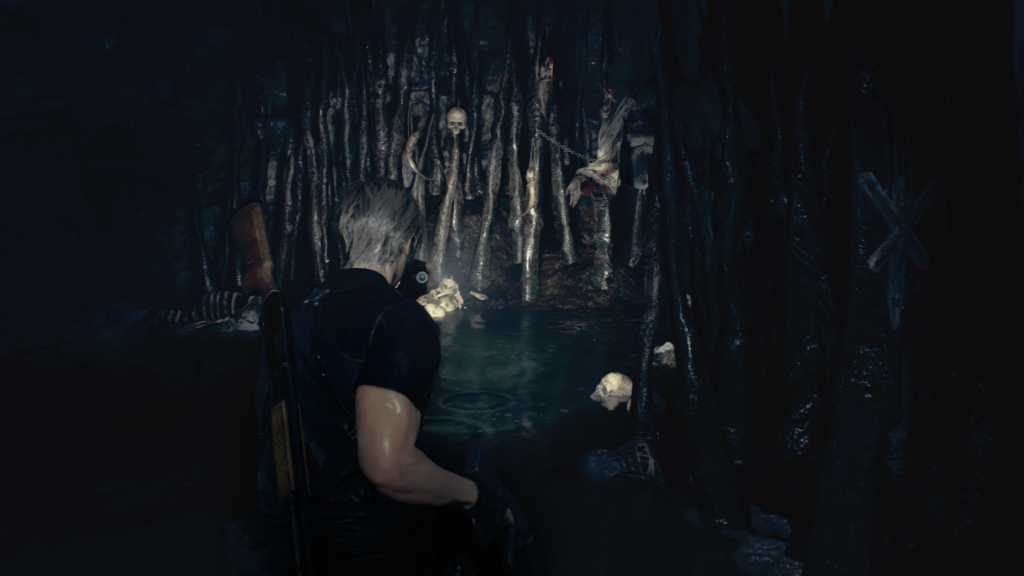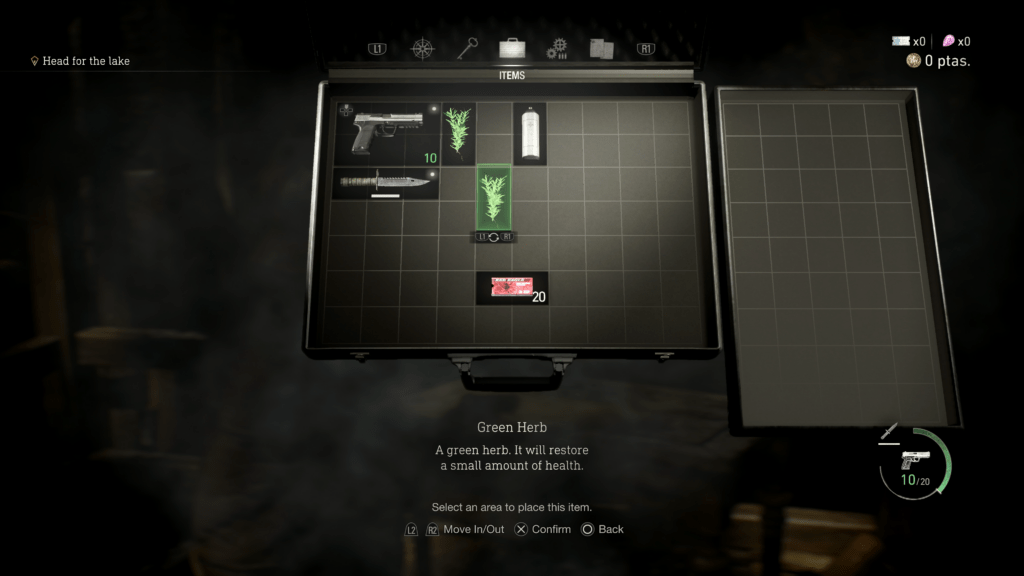You'll love it if:
- You firmly believe in the
- You're more into thrillers than horror
- You enjoy old-school game design
Not for you if:
- You're faint of heart
- Remakes and remasters are not your cup of tea
Resident Evil is one of the few franchises that has actually managed to stand the test of time. It started out as a huge success, essentially creating the survival horror genre of games but losing its way by trying to follow trends. Capcom could have accepted defeat in 2012 and abandoned the Resident Evil series. I’m so glad they didn’t.
The modern Resident Evil releases have gone back to the franchise’s roots, found all the things that made it stand out, and turned them up to 11. Both Biohazard and Resident Evil Village are huge steps in the right direction, but it’s the remakes that allow new fans to ease into the series and veterans to revisit the series’ golden. Resident Evil 4 is unanimously the most iconic release in the series, and thanks to CDMedia, we had the chance to play through the remake ahead of its release.
Earlier this month, we had the opportunity to sit through a hands-off preview of RE4, which did a great job of setting our expectations for this remake. Those who have already played the highly successful remakes of Resident Evil 2 & 3 will find things quite familiar, as Capcom’s objectives remain largely the same.
The remakes are faithful to the source material, but the gameplay mechanics are reworked to prioritize immersion. As I’m sure all of you are aware, Resident Evil 4 kickstarts a shift towards action-oriented gameplay, with the horror element taking the passenger seat. In the original, it works great. How well does Capcom manage to replicate it in the remake?
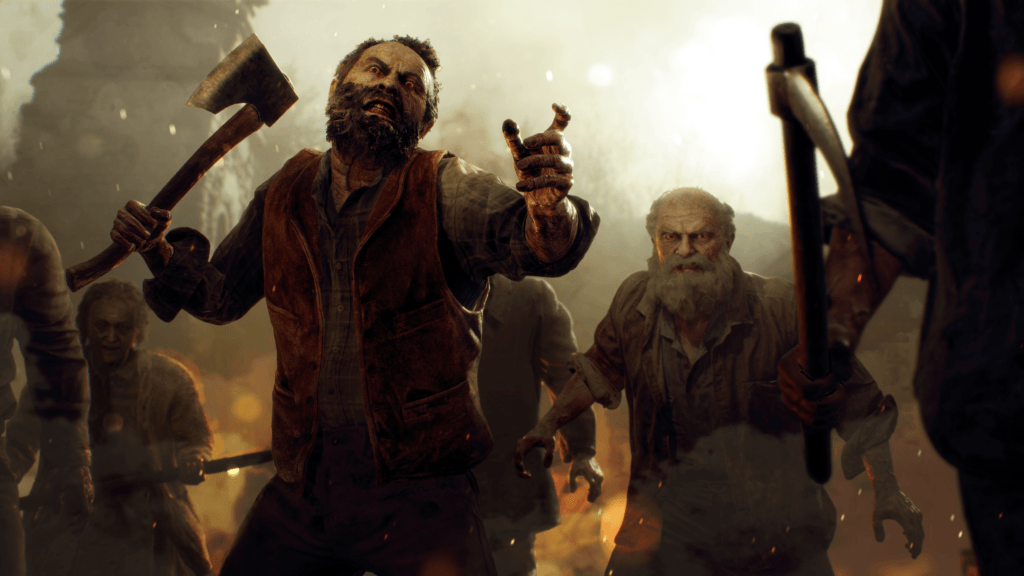
TL;DR
Resident Evil 4 strikes the perfect balance between modern horror film and vintage game design. It respects the source material while not being afraid to take advantage of the room for improvement.
All images in this article are provided by Capcom Europe. We were not allowed to capture gameplay before the game’s release.
Resident Evil 4: Presentation
Resident Evil 4 is imposing in the visual aspect. You may know what to expect around the next corner, but it certainly won’t be as you remember it. The RE4 remake is much more than a visual facelift, and while I’m certainly glad that the orange filter is no longer here, the changes extend to all areas of visual presentation.
Like the previous remakes, Resident Evil 4 fully succeeds in bringing a beloved story up to speed with the latest advancements in gaming, shaping it in such a way that it finds its place among the series’ latest entries. The style of Resident Evil 4 is now in the same vein as Biohazard & Village. That makes Resident Evil thematically consistent: some games may tell independent stories, but they all are consistent when it comes to the tone of the presentation.
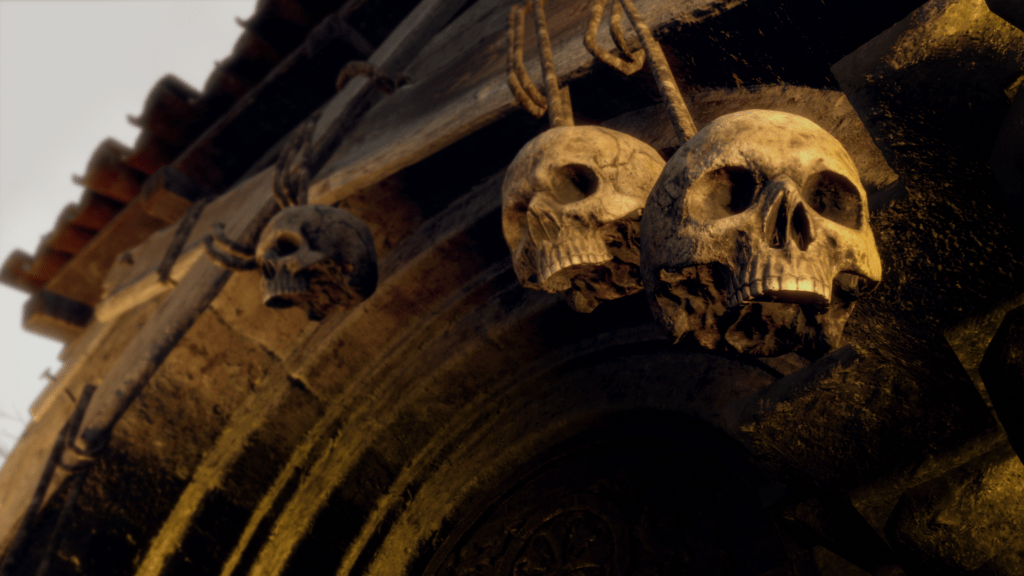
Cinematic, yet vintage
Resident Evil 4 is an aesthetically pleasing game. This may not be something new for the genre or the series, but seeing something that you remember fondly with a fresh coat of paint that respects its origins is truly something.
The remake presents a more serious tone than the original. The visual presentation brings it more into the realm of a horror film. I recommend playing with ray tracing turned on, as the real-time shadows unlock a seriously terrifying side of this game. Watching the faint sunlight pass through the leaves of the trees while you’re hiding in the shadows is something mesmerizing. The colour palette consists of muted colours, with shades of brown and grey everywhere, which fits the tone of the story. At times, it looks like a sepia filter, giving the game a vintage feel.
All story-driven titles nowadays attempt to give a cinematic feel to the visuals. Only a handful get it right though. Resident Evil 4 finds itself somewhere in the middle. The cinematics and gameplay flow slowly – as if to extend your torture, one might say, with long pauses that help build up tension. The camera angles in the cinematics are excellent, better than what you’ll find in most modern horror films.
However, the story remains divided into chapters, which gives you room to catch your breath before marching on. Personally, I think this style works particularly well in Resident Evil 4. You have to admit that Capcom has managed to find the silver lining between the modern style of storytelling and the classic ‘00s game design.
As vivid as your most recent nightmare
The so familiar, yet unnamed village returns and this time it’s not on GameCube. More good-looking than ever, in an otherworldly sense, get ready for it to become your nightmare fuel for the next few weeks. The location may not be scary in itself, but the sheer desolation of the village and the surroundings in which it’s set is enough to make you want to nope the f- out of there as quickly as possible. The same goes for the surrounding areas, which I’m not allowed to go into at length, as this is a pre-release review.
I could talk about character design, but I don’t think I need to. The community’s love for RE4’s iconic characters speaks for itself. There’s a reason why everyone loves Leon, Ada, and Ashley maybe not so much, but she’s up there. The remake doesn’t change much, other than to bring their key characteristics to a more down-to-earth level.
In short, Leon is not as much of an emo anymore, and Luis appears more charismatic than ever. Those of you who have played the game in the past have a good idea of when each character gets introduced. For me, these moments were accompanied by a burst of relief, as the characters are exactly as you remember them. Capcom, thankfully, does not f- around and which is rare in the era of botched remakes and rushed remasters.
The enemy design is also one of this game’s brightest spots. Just as in the original, the “brain parasites” sound more disgusting than scary until you get to see them in action. The bosses, on the other hand, have the ability to make the room temperature drop. If a village full of dudes whose heads are taken over by strange parasites doesn’t make you not be able to sleep for a week, then surely an enormous pale priest cosplaying as an undertaker and an evil, dwarf-like aristocrat will certainly do the trick. And that doesn’t even include all the other monstrous creatures you’ll need to cross paths with. There were many times when I had to press the pause button and take a deep breath before I could continue on.
High frame-rate horror
Resident Evil 4 is a very well-optimized game. Throughout my entire playthrough, I encountered no stutters, no frame drops, and no serious bugs. The copy we got for this review was on the PlayStation 5 and run very smoothly on both graphical settings. A technically sound remake.
Personally, I had the best experience playing in Performance, with ray-tracing enabled. While you’ll need the extra FPS in battles, the lifelike shadows offered by ray-tracing will greatly enhance your experience. Don’t forget that in horror games, the atmosphere is extremely important. The Performance setting will drop the rendering quality so you’ll get a consistent 60FPS even with ray-tracing enabled, but unless you’re playing on a 4K monitor, it’s not something you’ll notice. Testing all of this on a BenQ 2K monitor (can’t reveal more at the moment), I didn’t notice any significant loss of fidelity.
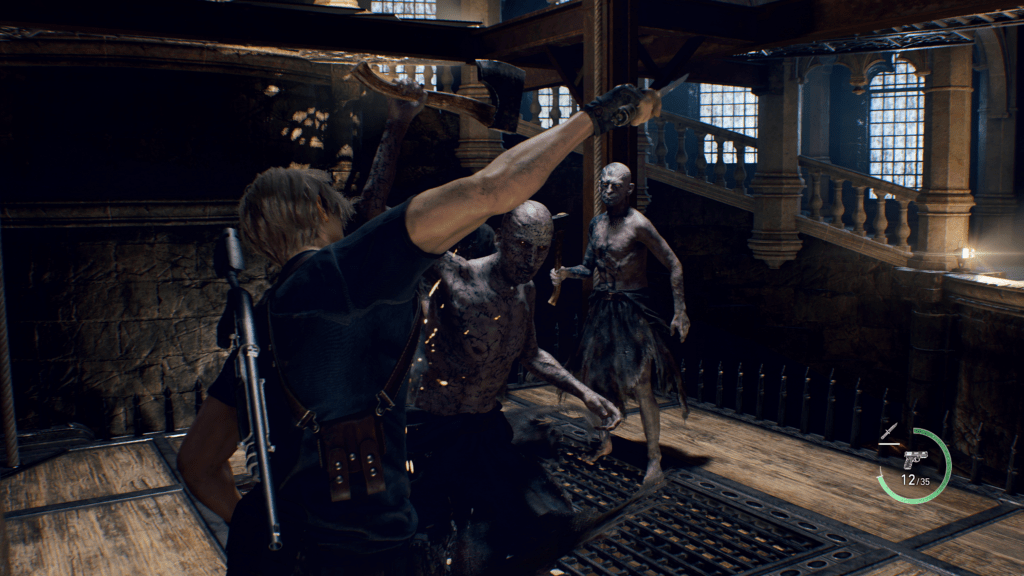
Resident Evil 4: Story
I won’t dwell too much on the story of Resident Evil 4. It’s one of the most entertaining stories in the genre and while it’s more or less familiar to all gamers over 20, there are a few changes in the remake that I can’t reveal but I found to have a positive impact on the outcome of the narrative. They help fill in the plot holes of the original script. I think it’s great that Capcom did not leave an already proven formula as it was but actively tried to improve the narrative. This is not some low-effort cash grab.
Least out-of-pocket European village
The story begins shortly after the events of Resident Evil 2. Leon is once again in the lead role, but this time as a special forces agent rather than a simple cop. His mission is to track down the daughter of the US President, who has been kidnapped. Thanks to the support of Ingrid, his handler, he manages to track down the girl in a rural village in Spain. Upon arriving there, Leon finds the residents behaving as they would in any Greek village: burning someone in the village square. Quite odd, considering that this is supposed to be in Spain.
Things start to look more dangerous when the villagers start chasing Leon through the village, chanting gibberish and throwing at him anything they could get their hands on; from axes to flaming arrows. As soon as the bells of the main church ring, however, as if hypnotized, all the villagers forget everything and start heading inside the church. Leon, having other priorities, decides not to get too involved and continues searching for his target. What he soon discovers, however, is that the two issues are quite closely linked, as the people controlling the villagers seem to be behind the kidnapping of the President’s daughter.
Loved by all, for all the right reasons
Resident Evil 4 is one of the community’s most beloved games and playing this remake, even if you haven’t experienced the original, it’s easy to see why. While the shift towards a more action-oriented approach is something not everyone appreciates, it’s hard to say that RE4’s story is poorly written. The narrative has stood the test of time and remains one of the most engaging horror stories. It effectively marries mystery and over-the-top characters with a compelling setting that even the most faint-hearted can appreciate.
As mentioned earlier, the storytelling was subjected to some changes, both in individual plot points and in the order in which events occur, but the narrative core remains the same. If you’re playing Resident Evil 4 for the first time, you’ll find the sudden plot twists of particular interest. The element of surprise is a very strong element of this particular story.
At the same time, if you’ve played the previous remakes, you’ll be glad to see some characters return; Leon first and foremost, something that makes an overarching Resident Evil universe apparent. In recent years, Capcom has been actively trying to paint the picture of an ever-present Resident Evil universe with the remakes. While you don’t need to have played Resident Evil 2 (let alone 3) to enjoy the story of RE4, you’ll be able to understand more of the references to the previous titles if you’ve been following the franchise.
Storytelling in this game is not afraid to take its time. It proceeds slowly but steadily, building tension. The build-up and pay-off duo is utilized to the fullest, and very successfully at that. As you take a break from the plot by solving puzzles, you set the stage for the next big moment in the script. It’s very effective, the gameplay forces you to work to find out what happens next, but never to the point of tiring you out. The story is divided into chapters which are episodic in nature (obviously), and make it easy to “consume” the plot one chapter at a time, which will be especially appreciated by those with limited time per day to spend on gaming.
Resident Evil 4: Gameplay
In contrast to the previous titles in the series, Resident Evil 4 features a shift in gameplay that is now more action-oriented than survival-oriented. This change is strongly reflected in the remake, only this time it’s done more smoothly than in the original product.
Shoot what scares you
There is a wide variety of action set pieces for all tastes. What makes the remake different from the original is that you can approach each situation in many different ways. The freedom the new engine gives you is remarkable. Every time you need to revisit a point (after you die, for example), the outcome of the battle will be different from the previous one. The experience feels less “on-the-rails”, although it very much is.
You can tackle every set piece using stealth. Or, you could opt for the easiest way and go around every corner guns blazing. The vast arsenal you have at your disposal in Resident Evil 4 makes combat rather entertaining. The Merchant will quickly become your biggest ally, as he will satisfy your needs for guns and ammunition, with a variety of weapons ranging from kitchen knives to military-grade rocket launchers. You’ll rarely find yourself running out of ammo (at least on Normal difficulty), as you can find plenty of bullets scattered around in barrels or chests, and you can easily craft yourself whatever you need. At the same time, your knife will be your most loyal companion, as you can even use it to parry a chainsaw (?).
The inventory space in your iconic suitcase is limited, so tread carefully. Zone inventory management can get a bit tedious when not used correctly, but it’s something I think is missing from modern game design, especially in survival genre titles where you have to carefully assess what you need and what you don’t.
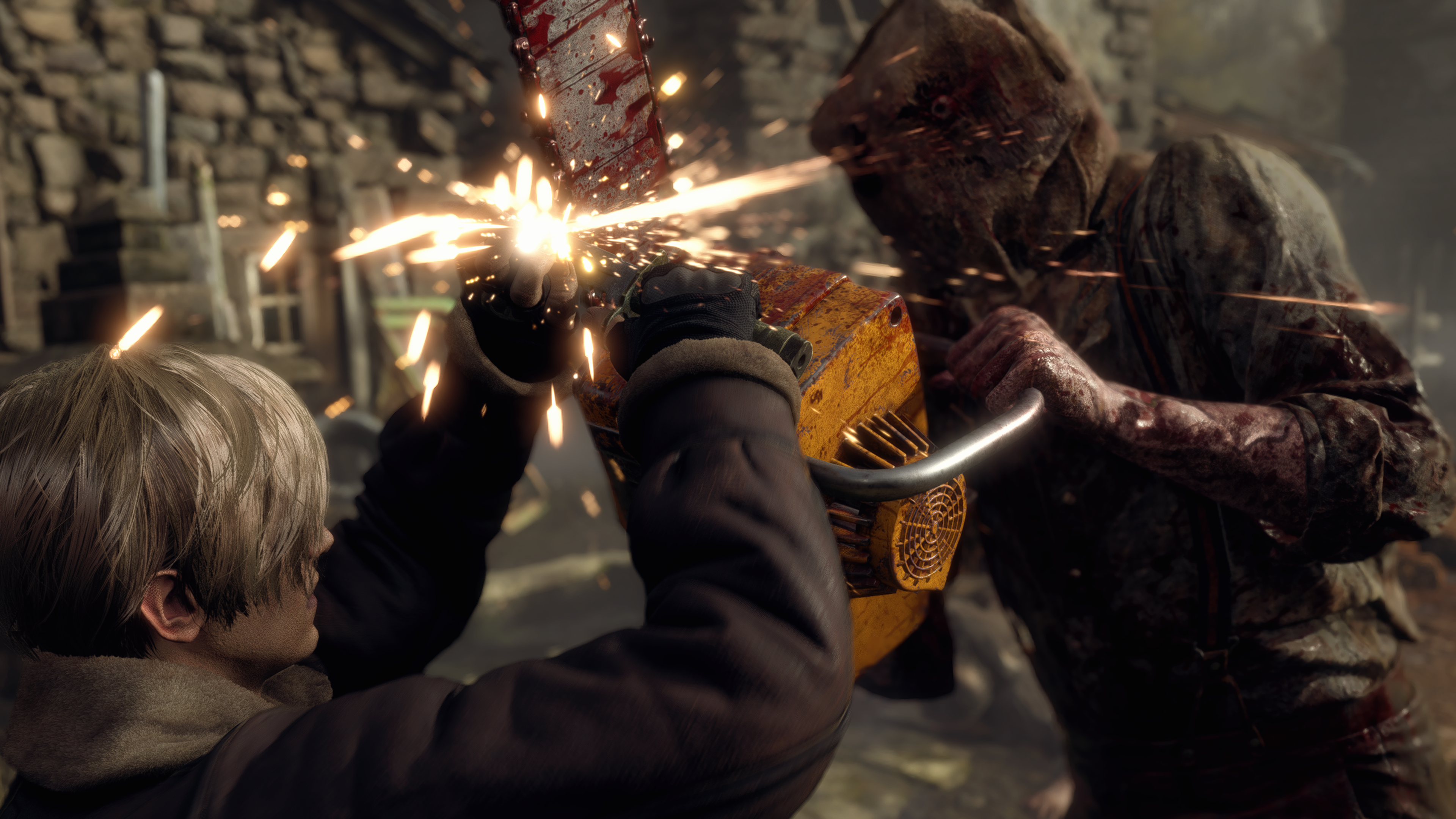
Or better yet, don’t
The fact that you don’t run out of ammo easily doesn’t mean that the gameplay is a walk in the park. Leon is very much human (well, for the most part) and there is a limit on how many hits he can take. Generally, it’s easier to die than to kill all enemies at any given set-piece, so going into a new area ready to rumble will rarely work. Healing items aren’t particularly rare, but to be truly effective, you have to craft special potions by combining herbs you find along the way. However, the most effective herb combinations are not easy to find, so tread carefully. In this game, caution is the most effective strategy.
Even if you die, though, you won’t have to go too far back. The addition of autosave is a quality-of-life feature, almost integral to today’s game design. And yet, I find that in this particular game, it does more harm than good. Losing in this kind of game has to have some consequences. It has to make you think before you go back to the area that defeated you on your last visit. The typewriters are still there to act as save points, but they no longer give you the feeling of relief they did on the PS2.
Boss fights remain the undisputed highlight of the gameplay loop. One more memorable than the other, they are the ultimate climax of most chapters and do a great job of highlighting the strengths of the combat, even for a horror game. With a few exceptions, immersive boss fights are something that modern releases lack. In that light, RE4 is a very welcome – and perhaps necessary – throwback to the past.
Pushing the boundaries
Resident Evil 4 doesn’t have much to offer in terms of exploration and that’s okay. The gameplay remains focused on achieving a goal and getting you from one story beat to the next. But you’ll need to explore the areas you’re placed in frequently in order to find solutions to the puzzles that stand in the way of progressing through the story. Usually, there’s not much to discover beyond what you actually need for the story. But there are some side missions (sort of) in the form of requests. These requests are taken up by bounties that you can usually find near the Merchant, and when completed, he will offer you a reward.
There are various cosmetics that can be unlocked from the Main Menu, using the CP you collect by completing in-game challenges. These range from suitcase charms and character skins to concept art and character models. They add a nice touch to the game, and as something extra to keep you interested. However, it’s a bit difficult to unlock everything in one run. This is where the New Game+ mode will come in extremely handy.
Resident Evil 4: Final thoughts
The remake of Resident Evil 4 fully justifies the title’s crucial position in gaming history and solidifies its status as a must-play. It’s a remake that not only brings the source material to 2023 but improves it in many areas without altering the features that made it stand out in 2005. The plot is presented more effectively than ever, the action is more devastating, and the visuals excel at setting the right atmosphere.
For the veterans, Resident Evil 4 will be a pleasant trip down memory lane where the game they remember so vividly turns out to be better than they expected. For newcomers, it’s the best chance to enjoy a title that has influenced the gaming industry like few others.
Capcom’s meticulous work always pays off, and this remake is proof of that. We can’t wait to see what surprises it has in store for the rest of the year, both for the Monster Hunter and Street Fighter series, but especially for new ventures like Pragmata.
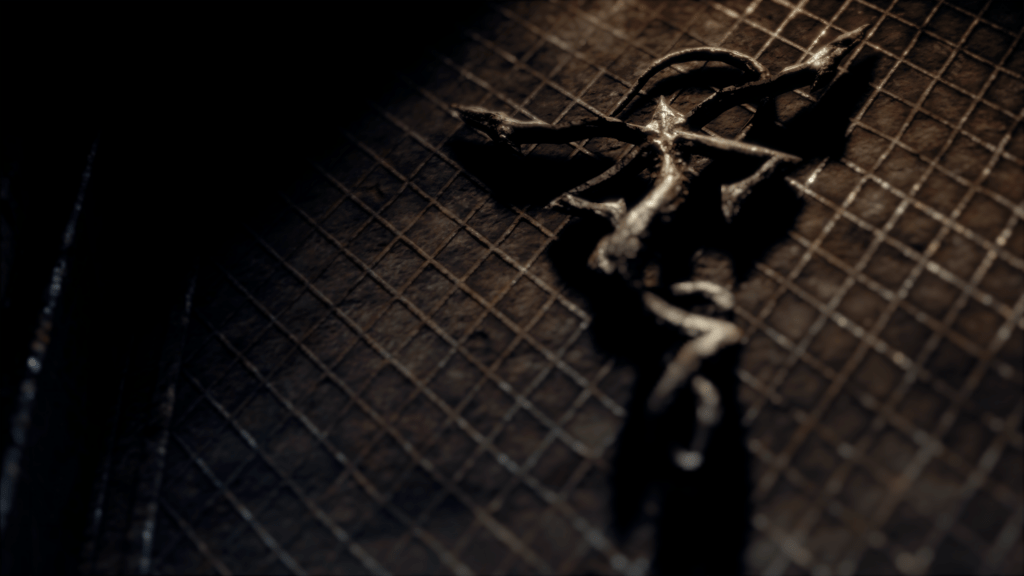
We would like to thank CDMedia for the review copy we used.
